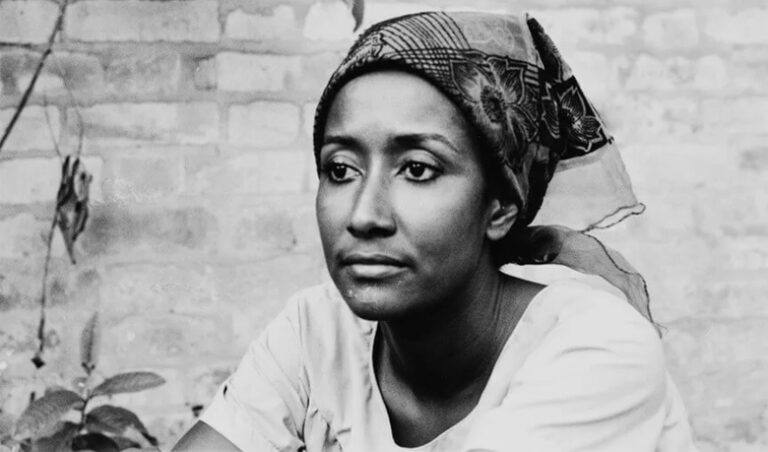
Focus 2025 & 2026 »Learning and Unlearning Film – Decolonising Cinema«

»Learning and Unlearning Film – Decolonising Cinema« is the Focus theme of both the 2025 and 2026 editions of the Festival. Across the history of cinema and through all film lengths and formats, we address urgent discourses in the FOCUS section of our programme. In 2025, we begin the exploration of our colonial past and its ongoing impact right up to the present day. Which images speak of the crimes of colonialism and the racist structures intertwined within it, without perpetuating them? Can cinematic perspectives disrupt established narratives and provoke deeper conversations about our colonial legacies? We will showcase and discuss empowering works from 120 years of film history, from early silent movies to contemporary productions, and in doing so form alliances with transnational stakeholders. Together, they will deconstruct images and sounds and decolonise the white gaze in cinema.
The programme features films by Mojisola Adebayo, Milisuthando Bongela, Sylvaine Dampierre, Julie Dash, Terry Francis, Onyeka Igwe, Eva Knopf, Rosine Mbakam, Sarah Maldoror, Marny Garcia Mommertz, Rebecca Pokua Korang, among others. They offer us encounters with Josephine Baker, Minnie Devereaux, Fasia Jansen or Majub bin Adam Mohamed Hussein.
Many of the films explore themes of identity, such as Milisuthando Bongela’s documentary Militsuthando, which examines the little-known Republic of Transkei – a territory formally granted full independence from South Africa as a »homeland« for Black people in 1976. Similarly, Sylvaine Dampierre traces the origins of her surname in Pays a l’envers. Sarah Maldoror’s Sambizanga from 1972, the first African feature film directed by a Black woman, adds a distinctly female perspective to male-dominated narratives of the African liberation struggle.
Another pioneering figure is Julie Dash, the first African American woman to have a feature film widely released in US cinemas. A special guest at this year’s Festival, Julie Dash will personally present her 1983 film Illusions, which was declared a national treasure by the Library of Congress. The film tells the story of a Hollywood studio executive, who passes as white and hires an African American woman to dub the singing voice of a white Hollywood actress.
The exploration of archives is another central theme. In several short film programmes, film-makers sound out artistic approaches to engage with racist imagery from the colonial era. Through acts of solidarity with the depicted people, they encourage us to critically question and reconsider these images.
A range of discourse formats complements the film programme. In the workshop »A Personal Decolonisation of the Gaze«, director Rosine Mbakam shares her insights into the power dynamics of the white gaze in film. The »Co-Productions Panel« will ask how German and African co-productions can be balanced to create new content and artistic forms. Producer Sophie Haikali will lead an open discussion with Khadija von Zinnenburg Carroll and Yasemin Şamdereli to share best practice examples.
Kerstin Honeit’s installation »Ich muss mit Ihnen sprechen« (I have to talk to you) explores the relationship between dubbing and racism, and the walking tour »Decolonise Dortmund – Discovering Dortmund’s Colonial Past!« rounds off the Focus section, curated by Betty Schiel and collaborators.
The Festival will place greater emphasis on the Focus section by addressing the theme over two festival editions. »Focus Learning to See, Learning to Unlearn – Decolonising Film« will continue in Cologne in 2026.







